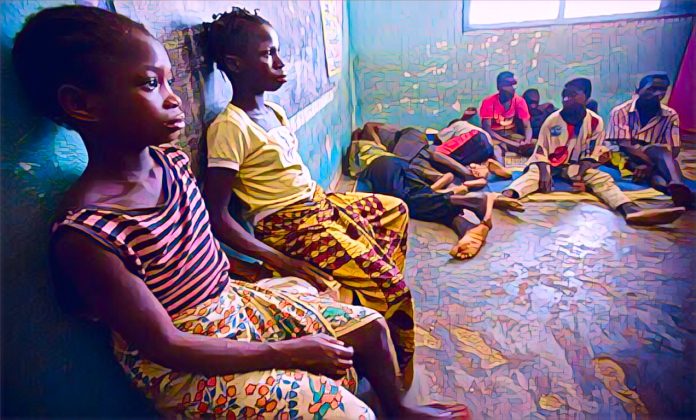Key Points
-
Unlicensed orphanages in Niger contribute to increasing child trafficking.
-
Lawmakers are pushing for an audit of orphanages in Niger.
-
Niger’s Assembly calls for stronger child protection laws and public awareness.
Niger State is grappling with a growing concern over child trafficking, particularly in the Internally Displaced Persons (IDP) camps.
The Speaker of the Niger Assembly, Mr. Abdulmalik Sarkindaji, revealed disturbing cases of exploitation involving unlicensed orphanages.
These illegal operations target vulnerable children in the camps, with traffickers exploiting their displacement for personal gain.
Sarkindaji shared a troubling account of a woman who took five children from the Shiroro IDP camp under the guise of enrolling them in school.
The woman promised to assist the displaced families, only to disappear with the children. The parents have since raised the alarm, and authorities are investigating the case, highlighting the urgent need for better protection measures in IDP camps.
Unlicensed orphanages exacerbate the problem
The motion brought before the Niger Assembly by Mr. Nasir Umar (APC-Paiko) emphasized the role of unregistered orphanages in fueling child trafficking.
These facilities, operating outside government oversight, have become breeding grounds for exploitation, abduction, and abuse.
Umar’s concerns were echoed by Sarkindaji, who stressed the importance of regulating orphanages and motherless babies’ homes across the state.
In addition to the trafficking issues, the Assembly is also concerned about the rising number of illegal orphanages.
Umar pointed out that many of these homes operate without proper documentation, enabling criminal activities to thrive unchecked.
He called on the Ministry of Women Affairs to audit and verify orphanages in the state, while establishing a licensing system to ensure accountability.
Legislative action to curb child trafficking
The Niger Assembly has taken action to address the issues of unlicensed orphanages and child trafficking.
The Speaker directed the clerk to forward relevant parts of the motion to the governor and the Ministry of Women Affairs.
He also called for a statewide audit of existing orphanages to ensure they comply with legal standards.
The Assembly’s focus now includes implementing stricter penalties for illegal operations and conducting public awareness campaigns on the dangers of unlicensed homes. The lawmakers are committed to ensuring that child protection laws are enforced and that vulnerable children in the state are shielded from exploitation.



